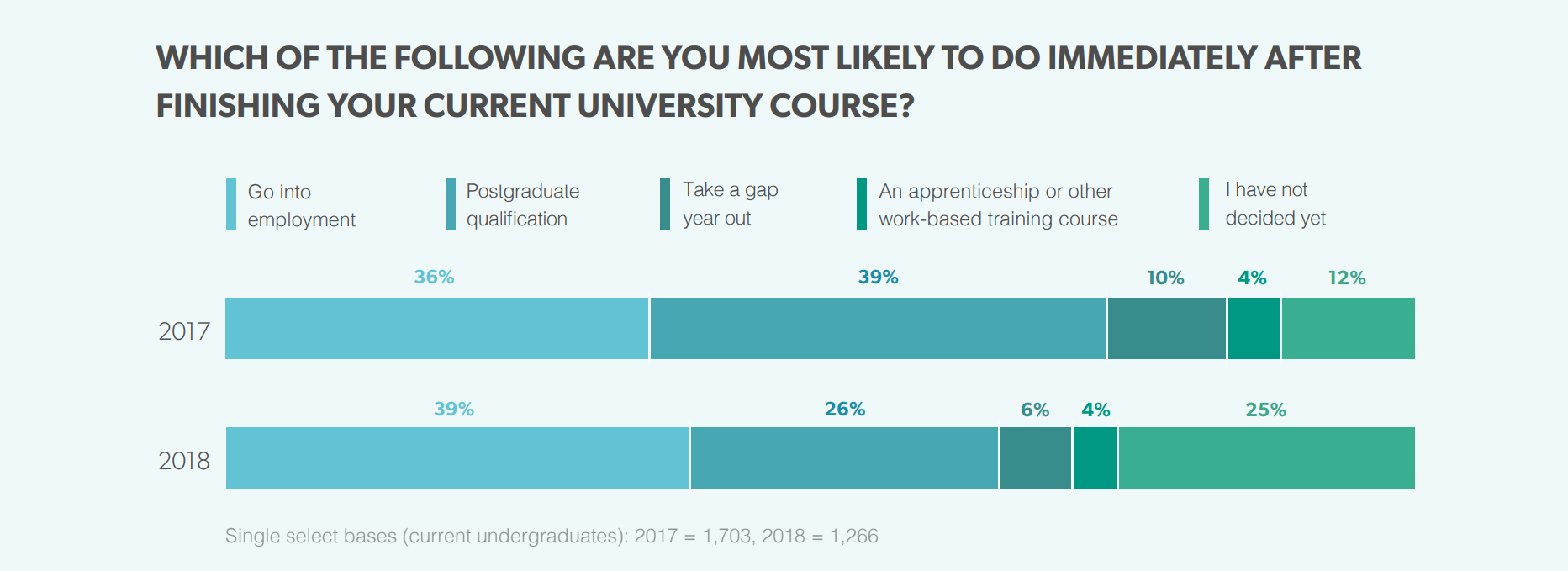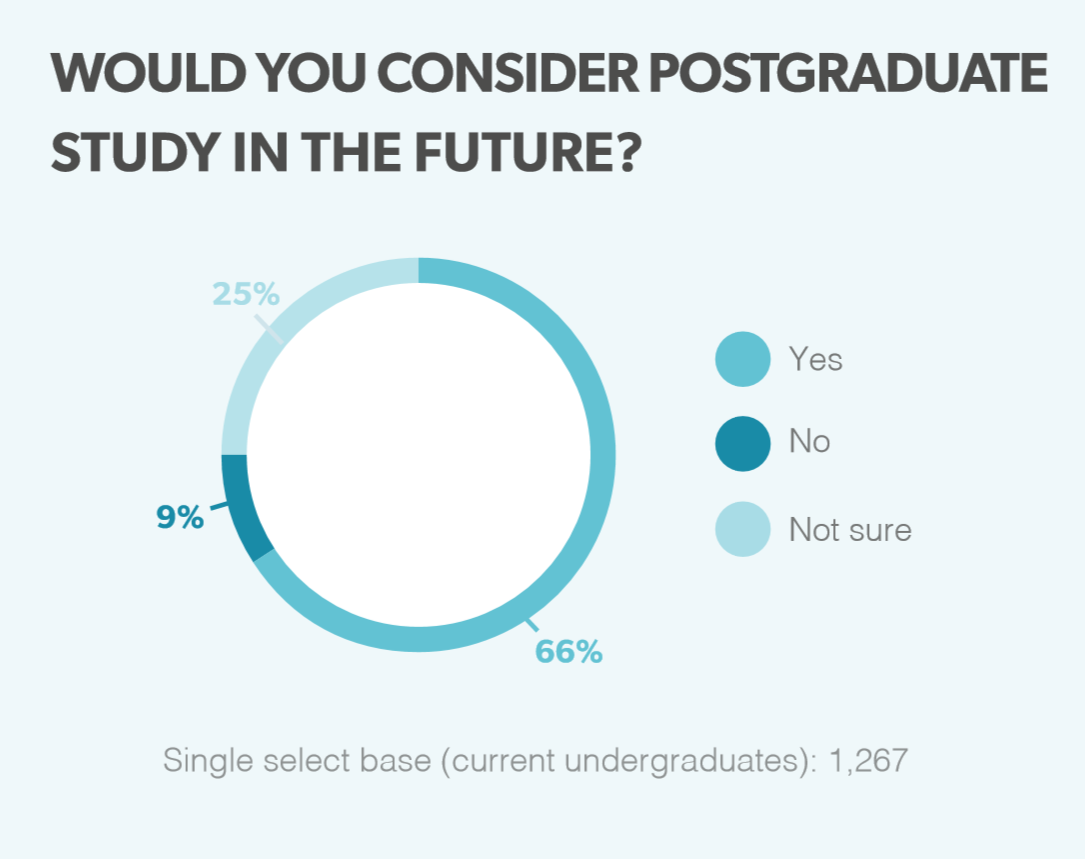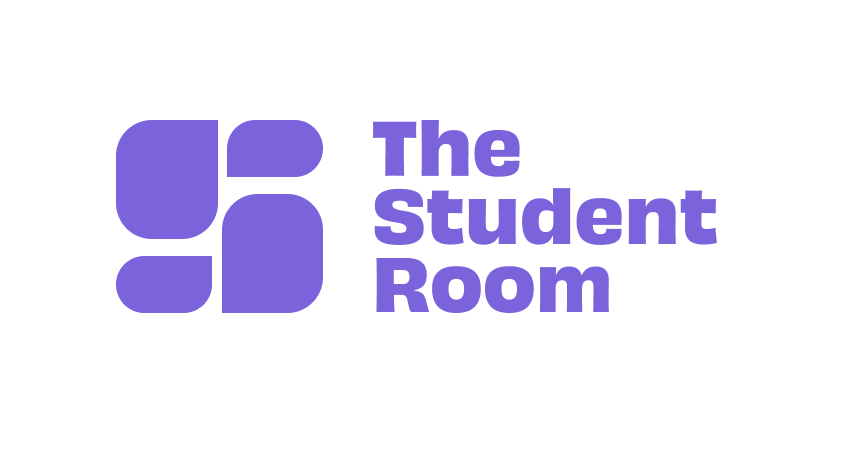1) When do students decide they want to do a postgraduate course?
It’s difficult for many universities to pin down the postgraduate application process. While the undergraduates have a fixed timetable and set deadlines, for postgraduate applicants the window is open all year round.
This means applicants’ decision-making journeys are always-on. To pin this down, we’ve analysed activity on The Student Room and identified when postgraduate applicants are most likely to be actively researching their options.
The graph below shows that postgraduate interest starts in January and spikes over the spring months. In the peak month of March, students using our postgraduate forum clock up over 300,000 pageviews. We can infer this is the key consideration stage for most applicants. This makes sense, as many students submit applications in June or July for courses starting in the autumn.

2) Is a postgraduate degree still a top choice for university graduates?

Every year we ask over 10,000 students about their post-degree pathway choices. Our 2018 data showed a considerable decrease in students who were interested in doing a postgraduate qualification (down 13% from 2017).
That 13% decline can be found in an increase from 12% to 25% of students who said, ‘I have not decided yet’. It’s fairly telling that one in four students are now uncertain about their future. However, despite these results, most undergraduate students (66%) said they would consider postgraduate study in the future.

Those undecided students are your low-hanging fruit. You have a window of opportunity to engage students who are considering doing postgraduate courses in the future but haven’t made up their minds yet.
3) What motivates undergraduates to do a postgraduate course?
UCAS found the most popular reason for undertaking postgraduate study was to further the student’s knowledge of a subject (59%). ‘To provide more career options’ came in second place (58%) and improving earning potential was only at 44%.
That said, more than 80% of students believe a postgraduate qualification will ‘open up more opportunities’ in the future, compared to having an undergraduate degree alone. Around the same number of students said the qualification isn’t the only attraction, but the experience itself is a big pull.
In terms of deterrents, we found that respondents were more likely to be unsure about postgraduate study if their parents had not been to university (no parents at university 29%, one parent 20%, both parents 22%).
Interestingly, respondents that had free school meals throughout their education were more likely to say they would consider postgraduate study (73%) than those who didn’t (64%).
4) Do undergraduate students feel informed about their options for postgraduate study?

A whopping 60% of current undergraduate respondents did not feel adequately informed about postgraduate study. Only 24% reported they did feel informed.
Among all respondents in their final year of undergraduate study, only 27% said they felt very or quite informed about postgraduate study.
Understandably, there was a correlation between how informed students felt and how likely they were to continue studying. Of respondents who were said they were considering postgraduate study straight after university, 36% felt very or quite informed (nearly 10% above the average of 27%).
These findings show why early and sustained engagement is so important. The more universities share information with prospective postgraduate students, the more likely they are to apply when the time is right.
5) How should you adapt messaging and creative for a postgraduate audience?
Our experienced Client Services team delivers close to 1,000 client campaigns every year. Today we’re sharing their valuable tips and expert recommendations to help boost your campaign performance.
Imagery and colour
The best performing creatives use simple block colours and text copy. Unlike the undergraduate audience, we find the postgraduate audience does not respond well to images of people.
When it comes to popular colour schemes, a range of blues, pinks and red hues are most popular.

There are some interesting psychological associations which explain why:
- Pink is associated with compassion and nurturing while conveying a sense of sensitivity.
- Red is associated with desire, energy and courage, it’s used to create urgency and stimulate someone to act.
- Blue is associated with trust, facts and responsibility; it’s used to instil confidence and inspire feelings of loyalty.
Messaging
The Student Room audience responds well to creative that mentions keywords like ‘Masters’, ‘scholarships’, ‘standing out from the crowd’ or ‘being above the rest’.
Top tip: We found creative performs well when you use specifics such as dates, times, locations or length of study to enhance the impact of your messaging.
The postgraduate and undergraduate recruitment cycles are vastly different. We’ve broken down when our audience best resonates with different types of messaging.
This graph shows the click-through response rate based on different call-to-action’s (CTA). A soft CTA is a phrase like “find out more” or “explore our courses”, which encourage students to do more research to progress along the decision-making journey. A hard CTA is more direct, using phrases like “book now” or “apply today”. Hard CTAs encourage applicants to meet your conversion goals.

Response rates for hard CTAs peak in March and June. We already identified March as the peak consideration period and June as an important application window, so this makes sense.
Soft CTAs spike, and achieve a higher response rate than hard CTAs, between April and June.
6) What are postgraduate applicant’s concerns and challenges?
Discussions and questions on The Student Room reveal a number of trends. A lot of the questions are around application advice, financial support and trading-up universities. There were very little interests in discussing subjects or specialisms. Here are some examples:
- Is a suit and tie too dressy for a PG interview?
- Postgraduate masters loan help
- When do you get your postgraduate offer?
- Does it matter where you do a PhD?
- Job opportunities post-graduation
- Part or full-time Masters?
- Do I have any chance of PhD funding whatsoever?
Other articles on postgraduate topics
5 postgraduate funding tips to reassure applicants
Postgraduate education: understanding your audience
Interested in learning more about our postgraduate applicants audience? We have 133,500 users interested in postgraduate content on The Student Room. Speak to us about how you can reach and engage this valuable group with our tried-and-tested student marketing solutions.

